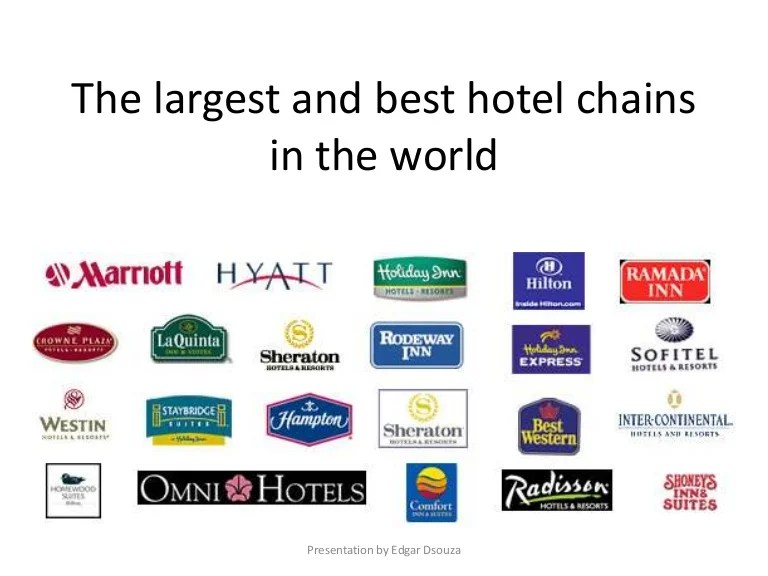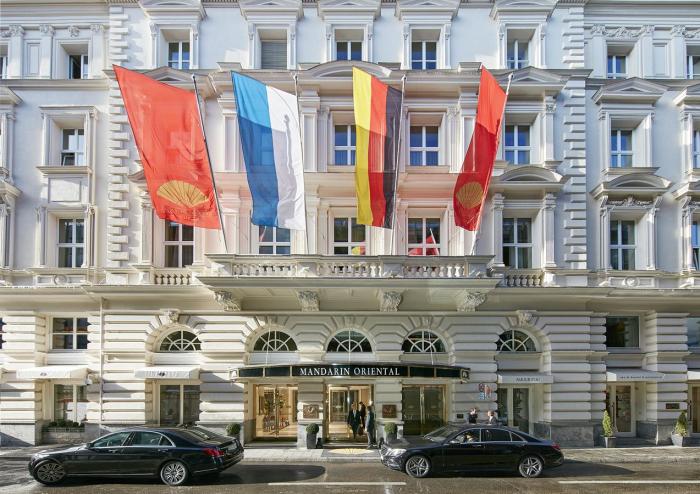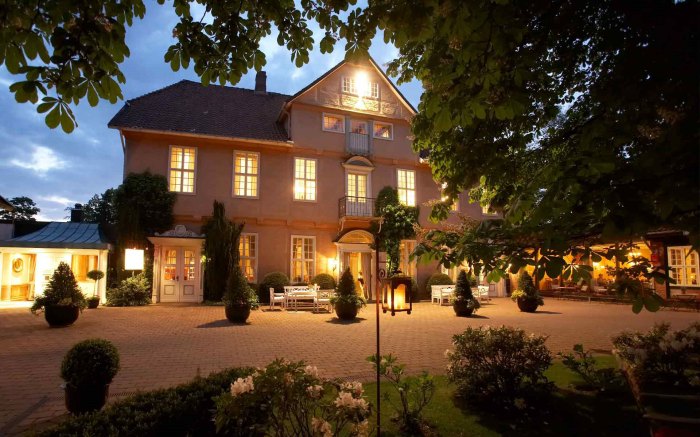Embark on a journey into the world of German chain hotels, where efficiency, comfort, and innovation intertwine to create an exceptional hospitality experience. From market overview to future trends, this guide unveils the intricacies of this dynamic industry, providing valuable insights for travelers, industry professionals, and investors alike.
German chain hotels have carved a niche for themselves in the global hospitality landscape, renowned for their unwavering commitment to quality, sustainability, and customer satisfaction. As we delve into the details, you’ll discover the key players, their competitive strategies, and the growth drivers shaping the industry’s trajectory.
Market Overview

The German hotel industry is a significant contributor to the country’s economy, with a market size of over 40 billion euros in 2022.
German chain hotels hold a substantial market share, accounting for approximately 40% of the total hotel market in Germany.
Major German Chain Hotel Brands
- AccorHotels
- B&B Hotels
- Best Western
- Choice Hotels
- Deutsche Hospitality
- Hilton
- IHG
- Marriott International
- NH Hotel Group
- Radisson Hotel Group
Competitive Landscape
The German chain hotel market is highly competitive, with several major brands vying for market share. These brands offer a range of properties, from budget-friendly options to luxury accommodations, catering to a diverse range of travelers.
To understand the competitive landscape, it’s important to compare the strengths and weaknesses of the major players, analyze their market positioning and target audience, and discuss their pricing strategies and loyalty programs.
For travelers on a budget, budget hotel brands offer a comfortable and affordable option. These hotels often provide basic amenities, such as free Wi-Fi and breakfast, and are conveniently located near popular attractions. They are a great choice for those looking to save money without sacrificing quality.
Strengths and Weaknesses of Major Brands, German chain hotels
- Accor: Accor is a global hotel group with a strong presence in Germany. Its brands include Ibis, Novotel, and Mercure, which cater to a wide range of travelers. Accor’s strengths include its extensive network of properties, its loyalty program, and its focus on sustainability.
- B&B Hotels: B&B Hotels is a budget hotel chain with over 100 properties in Germany. Its strengths include its low prices, its convenient locations, and its modern design.
- Deutsche Hospitality: Deutsche Hospitality is a German hotel group with a portfolio of brands including Steigenberger, IntercityHotel, and Jaz in the City. Its strengths include its focus on quality, its commitment to customer service, and its strong presence in the German market.
- Hilton: Hilton is a global hotel group with a number of properties in Germany. Its brands include Hilton Hotels & Resorts, DoubleTree by Hilton, and Hampton by Hilton. Hilton’s strengths include its global reach, its loyalty program, and its reputation for quality.
- InterContinental Hotels Group (IHG): IHG is a global hotel group with a number of properties in Germany. Its brands include InterContinental Hotels & Resorts, Crowne Plaza, and Holiday Inn. IHG’s strengths include its global reach, its loyalty program, and its focus on business travelers.
- Marriott International: Marriott International is a global hotel group with a number of properties in Germany. Its brands include Marriott Hotels & Resorts, Sheraton, and Courtyard by Marriott. Marriott’s strengths include its global reach, its loyalty program, and its focus on luxury travelers.
Growth Strategies

German chain hotels have been implementing various growth strategies to expand their presence both within Germany and internationally. These strategies include organic growth through new hotel openings, acquisitions, and partnerships.
Within Germany, German chain hotels are focusing on expanding their presence in major cities and tourist destinations. They are also targeting secondary and tertiary markets, where they see potential for growth.
Expansion Plans
- German chain hotels are expanding their presence in major cities such as Berlin, Munich, and Hamburg.
- They are also targeting secondary and tertiary markets, such as Dresden, Leipzig, and Cologne.
- Internationally, German chain hotels are focusing on expanding their presence in Europe, Asia, and the Middle East.
Acquisition and Partnership Strategies
German chain hotels are also pursuing growth through acquisitions and partnerships. In recent years, they have acquired several independent hotels and small hotel chains.
They have also entered into partnerships with other hotel chains, airlines, and travel agencies. These partnerships allow them to cross-sell their products and services, and reach a wider customer base.
Customer Experience

German chain hotels prioritize providing a comfortable and efficient stay for their guests. Their service quality is generally high, with friendly and helpful staff. However, some areas for improvement include personalized attention and consistency across different locations.
German chain hotels are increasingly using technology to enhance the customer experience. This includes online check-in and checkout, mobile room keys, and automated guest services. These features provide convenience and efficiency for guests, but it’s important to ensure that they do not compromise the personal touch.
Strengths
- Friendly and helpful staff
- High standards of cleanliness and comfort
- Efficient check-in and checkout processes
Weaknesses
- Limited personalized attention
- Inconsistent service quality across different locations
- Lack of innovative amenities and services
Use of Technology
German chain hotels are actively adopting technology to improve the guest experience. Some notable examples include:
- Online check-in and checkout
- Mobile room keys
- Automated guest services (e.g., voice assistants, chatbots)
These technologies provide convenience and efficiency for guests, but it’s important to ensure that they do not compromise the personal touch and human interaction that are essential for a memorable hotel stay.
Sustainability Initiatives: German Chain Hotels

German chain hotels are increasingly embracing sustainability initiatives as environmental and social responsibility become more important to travelers. They are implementing a range of practices to reduce their environmental impact and support local communities.
Environmental Practices
- Energy efficiency:Hotels are investing in energy-efficient lighting, appliances, and building materials to reduce their energy consumption.
- Water conservation:Hotels are installing low-flow fixtures and implementing water-saving practices to reduce their water usage.
- Waste reduction:Hotels are reducing waste by implementing recycling and composting programs and using sustainable packaging.
- Green building:Hotels are constructing new buildings and renovating existing ones to meet green building standards, such as LEED certification.
Social Responsibility
- Community involvement:Hotels are partnering with local organizations to support community initiatives, such as food banks and homeless shelters.
- Fair trade practices:Hotels are sourcing products and services from suppliers who adhere to fair trade practices.
- Employee well-being:Hotels are investing in employee training and development programs and providing fair wages and benefits.
- Cultural preservation:Hotels are working to preserve local culture and heritage through partnerships with museums and cultural organizations.
German chain hotels are making significant progress in sustainability, but there is still room for improvement. Some areas for further development include:
- Renewable energy:Hotels could increase their use of renewable energy sources, such as solar and wind power.
- Water recycling:Hotels could implement water recycling systems to reduce their water consumption.
- Sustainable food sourcing:Hotels could source more food from local and sustainable suppliers.
- Employee engagement:Hotels could increase employee engagement in sustainability initiatives to foster a culture of environmental and social responsibility.
Marketing and Distribution

German chain hotels employ a comprehensive marketing strategy that encompasses both online and offline channels. Their primary objective is to reach a wide audience and establish a strong brand presence.
Online, they leverage social media platforms, search engine optimization (), and online travel agents (OTAs) to increase visibility and drive bookings. They also invest in targeted digital advertising campaigns to reach specific customer segments.
Key Distribution Partners
- Online Travel Agents (OTAs): OTAs such as Booking.com and Expedia are key distribution partners for German chain hotels, providing access to a global customer base.
- Global Distribution Systems (GDSs): GDSs like Amadeus and Sabre connect German chain hotels with travel agents worldwide, enabling them to distribute inventory and receive reservations.
- Tour Operators: German chain hotels partner with tour operators to offer package deals and cater to group bookings.
Financial Performance
German chain hotels have demonstrated strong financial performance in recent years, driven by robust demand for travel and hospitality services. The industry has benefited from favorable economic conditions, increased tourism, and the growth of the business travel sector.Major German chain hotel brands, such as Deutsche Hospitality, Accor, and Marriott International, have reported healthy revenue growth and profitability.
Their asset utilization rates have also remained high, indicating efficient use of their properties.
Revenue
The revenue of German chain hotels has grown steadily over the past five years. In 2022, the industry generated approximately €15 billion in revenue, representing an increase of 5% compared to the previous year. This growth was primarily driven by increased occupancy rates and higher average daily rates (ADRs).
Profitability
German chain hotels have maintained healthy profitability margins. In 2022, the industry’s operating profit margin was around 15%, which is higher than the average for the hospitality sector globally. This profitability is attributed to efficient cost management and strong demand for their services.
Asset Utilization
German chain hotels have achieved high asset utilization rates, indicating efficient use of their properties. In 2022, the industry’s average occupancy rate was approximately 75%, while the average ADR was €120. These metrics suggest that German chain hotels are effectively managing their inventory and maximizing revenue generation.
Financial Outlook and Investment Opportunities
The financial outlook for German chain hotels remains positive. The industry is expected to continue to benefit from favorable economic conditions and the growth of the travel and tourism sector. As a result, revenue and profitability are projected to remain strong in the coming years.For
investors, German chain hotels offer attractive investment opportunities. The industry’s stable cash flows, high profitability, and potential for growth make it an attractive asset class. Several major hotel chains have recently announced plans to expand their presence in Germany, which is expected to further drive industry growth.
If you’re looking for a budget-friendly option without sacrificing comfort, consider exploring budget hotel brands . These chains often offer affordable rates, convenient locations, and comfortable accommodations, making them a great choice for travelers on a budget.
Future Trends
The German hotel industry is on the cusp of a transformative era, driven by emerging trends that are reshaping the sector. These trends encompass technological advancements, sustainability initiatives, and evolving consumer preferences, all of which will significantly impact the growth prospects of German chain hotels.
Technology
Technology is revolutionizing the hotel industry, enhancing guest experiences and streamlining operations. Contactless check-in/out, mobile room keys, and voice-activated controls are becoming increasingly prevalent, providing guests with convenience and personalization. Artificial intelligence (AI) and machine learning (ML) are also being leveraged to optimize pricing, predict demand, and offer tailored recommendations to guests.
Sustainability
Sustainability is a growing priority for both travelers and hoteliers. German chain hotels are actively implementing eco-friendly practices to reduce their environmental footprint. This includes using renewable energy sources, adopting water conservation measures, and implementing waste management programs. Sustainable hotels are not only appealing to environmentally conscious travelers but also align with the industry’s commitment to responsible tourism.
Changing Consumer Preferences
Consumer preferences are constantly evolving, and hotels must adapt to meet the demands of today’s travelers. Guests are seeking personalized experiences, authentic local connections, and seamless digital interactions. German chain hotels are responding by offering customized amenities, partnering with local businesses, and investing in mobile-friendly platforms.
By embracing these trends, hotels can cater to the evolving needs of their guests and drive future growth.
Outcome Summary
The German chain hotel industry stands as a testament to the power of innovation, sustainability, and customer-centricity. As the industry continues to evolve, these hotels are poised to remain at the forefront, adapting to changing consumer preferences and embracing emerging technologies.
Whether you’re a seasoned traveler seeking a reliable and comfortable stay or an investor looking for promising opportunities, German chain hotels offer a compelling proposition that is sure to impress.
Question Bank
What are the major German chain hotel brands?
Some of the most prominent German chain hotel brands include Accor, B&B Hotels, Deutsche Hospitality, Hilton, IHG, Lindner Hotels & Resorts, Maritim Hotels, and Steigenberger Hotels & Resorts.
How do German chain hotels compare to their international counterparts?
German chain hotels are generally known for their high standards of quality, efficiency, and attention to detail. They often feature modern amenities, comfortable accommodations, and a strong focus on sustainability.
What are the growth strategies of German chain hotels?
German chain hotels are pursuing growth through a combination of organic expansion, acquisitions, and partnerships. They are also expanding their presence in international markets, particularly in emerging economies.


